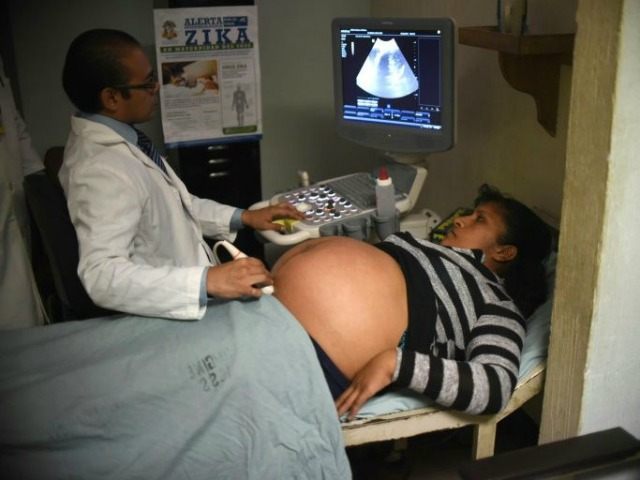Alleged ties between the Zika virus and increased numbers of cases of microcephaly in Brazilian babies may be due more to hype and hysteria than serious science, according to a recent analysis of the data involved.
The notion of a crisis or epidemic sprang from findings of the Brazil Ministry of Health that between November 8 through January 30 an unusually high number of babies—404—were born with microcephaly, a condition characterized by an exceptionally small cranium.
In a search for possible causes behind the uptick in microcephaly cases, doctors pointed out that seventeen of the cases correlated to mothers who had been infected with the Zika virus.
Yet parsing the numbers involved, scholar Pia de Solenni has pointed out that if only 17 of the cases could be linked to Zika, this represents a mere 4% of the total, suggesting that there must be another cause or causes to explain the higher incidence of children born with microcephaly.
In the face of the simple facts, de Solenni asks whether the full-blown embrace of the Zika-microcephaly connection might be pure hype rather than serious science. “Taken with the fact that authorities are investigating another 3,670 suspected cases [of microcephaly] indicates that this could be hysteria rather than epidemic, admittedly understandable in the current media climate,” she wrote.
Flipping the data around, the scholar noted that 96% of the cases of microcephaly in the numbers cited by the Brazil Ministry of Health were not in any way related to the presence of the Zika virus, meaning that any epidemic of microcephaly must necessarily have another origin.
The Centers for Disease Control and Prevention (CDC) has admitted its ignorance in the matter, declaring in a statement that “it is unknown if a positive result [of Zika] is predictive of a subsequent fetal abnormality, and if so, what proportion of infants born after infection will have abnormalities.”
Zika itself has been around for decades, and up to now has never been found to correlate to birth defects in children. Its effects are so mild and short-lived that 4 out of 5 people infected with the virus do not even realize they are sick. Symptoms include low-grade fever, maybe a rash, possible conjunctivitis (pink eye), and some joint pain. That’s it.
The fact that the known ties between Zika and microcephaly are circumstantial at this point has not deterred abortion activists like Planned Parenthood from stoking the flames of panic among pregnant women and exploiting the situation to push for relaxing abortion legislation in Latin American countries where it is restricted.
The abortion industry has found its “silver lining” in the Zika epidemic and instead of promoting research into remedies to treat or counteract the virus, they have preferred to play into people’s worst fears to push for abortion-on-demand in countries like El Salvador that currently restrict or prohibit abortion.
El Salvador, in fact, tops the list of countries targeted by Planned Parenthood and other abortion advocacy groups, since it is considered the nation with “the world’s strictest anti-abortion law,” and thus a permanent thorn in the side of abortion activists.
The New York-based pro-abortion Center for Reproductive Rights has even organized an online petition demanding that the government of El Salvador legalize abortion for women who contract the Zika virus.
Yet despite the full-court press against Salvadoran pro-life legislation, El Salvador’s Ministry of Health reported last week that 13 women infected with the disease had recently given birth to perfectly healthy babies with no signs of microcephaly.
The mainstream media have joined the abortion industry in its crusade to have abortion laws relaxed, with headlines such as “How Anti-Abortion Laws in the Americas Are Fuelling the Zika Virus Epidemic” (The Independent); “If Women with Zika Risk Shouldn’t Get Pregnant, They Need Abortion Access” (The Guardian); “The Abortion Rights Dystopia Brought On by the Zika Crisis” (Jezebel).
Meanwhile, in a typical man-bites-dog storyline, the Catholic Church has come under fire for its consistent pro-life teachings, as if this somehow were the cause behind children contracting birth defects.
Maybe when the smoke clears, the real culprits behind the Zika-microcephaly hysteria and needless anxiety for countless women will be brought to account.
Then again, probably not.
Follow Thomas D. Williams on Twitter @tdwilliamsrome

COMMENTS
Please let us know if you're having issues with commenting.